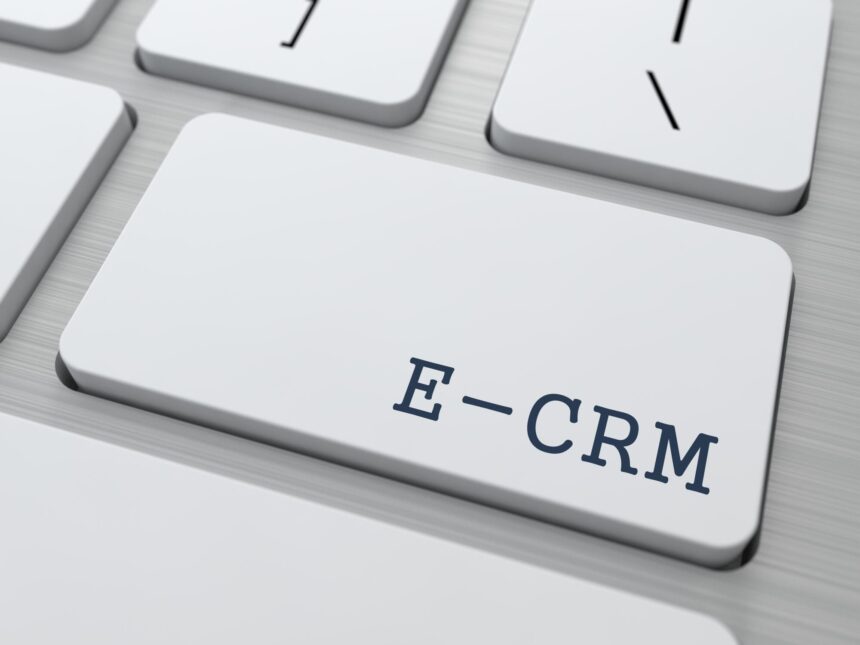Running a small business takes a lot of effort. Owners wear many hats-handling sales, customer service, marketing, and more. As the business grows, it becomes harder to keep track of everything.
A CRM helps small businesses stay organized, serve customers better, and grow with less stress. It might sound like something only large companies use, but even the smallest businesses can benefit from it.
Having a CRM can be a game-changer. It brings structure to everyday tasks and improves how a business connects with its customers. This article explores why a CRM is essential for small business growth and efficiency.
Better Organization of Customer Data
One of the biggest challenges for small businesses is keeping customer data organized. Without a proper system, it’s easy to lose track of contact details, past conversations, or purchase history. A CRM keeps everything in one location.
Team members can quickly find what they need, even if someone else was handling the customer before. This makes the business run more smoothly and avoids confusion.
Well-organized data means faster work and fewer mistakes. For example, a florist with a CRM can easily look up a repeat customer’s favorite bouquet or delivery address. This saves time and creates a more personalized service, which customers love.
Improved Customer Service
Good customer service builds trust. A CRM allows employees to respond faster and more accurately to customer needs.
If a customer calls about a previous order, the team can pull up their full history in seconds. This kind of quick response helps customers feel valued. It also prevents errors, such as sending the wrong product or missing a follow-up.
Customers today expect businesses to remember them. With a CRM, you can greet returning clients by name, recall their preferences, and continue where the last conversation left off. This adds a personal touch and helps build long-term loyalty.
Easier Team Collaboration
In many small businesses, multiple people deal with the same customer. Without a shared system, this can lead to mixed messages or dropped tasks. A CRM lets everyone see what’s going on.
Notes, follow-ups, and conversations are all recorded. This improves teamwork. Everyone stays in the loop, and nothing falls through the cracks.
For example, if one employee is out sick, another can easily step in and pick up where they left off. This keeps customers happy and prevents delays.
Automated Tasks Save Time
A CRM can handle many small tasks automatically. This includes sending follow-up emails, reminders for calls, or updates about new services. These tasks might take a lot of time if done manually.
Automation saves time and allows
employees to focus on more important work. It also ensures consistency, since the CRM follows rules without forgetting anything.
For example, a gym can set up automatic reminders for membership renewals or free trial expirations. Customers stay informed, and staff members don’t need to send messages one by one.
Better Marketing Campaigns
Marketing is more effective when it’s targeted. A CRM can divide customers into groups based on interest, location, or purchase history. This makes it easier to send the right message to the right people.
For example, a bakery can send cake promotions only to people who have ordered cakes before. This targeted approach improves response rates and reduces wasted marketing efforts.
You can also use a CRM to test different marketing messages and see what works best. Over time, your campaigns become more effective, and your return on investment grows.
Helps in Making Informed Decisions
Small businesses must make smart decisions to grow. A CRM provides reports and insights based on real data.
Business owners can see which products are selling well, how long it takes to close a sale, or which customer group brings in the most income. With this information, they can make better choices about where to invest time and money.
Data removes guesswork. If you know what your customers want and how they behave, you can shape your business around their needs. This helps avoid wasted time and missed opportunities.
Supports Sales Growth
A CRM helps businesses follow up with leads and turn them into customers. It tracks where each lead is in the sales process and reminds the team when it’s time to check in. This keeps the sales pipeline full and moving.
It also shows which sales activities bring the best results. As a result, the business can focus on strategies that work.
It’s easy to forget to follow up when things get busy. A CRM makes sure no potential sale is overlooked. It also helps businesses stay consistent in how they approach leads, which leads to higher close rates.
Mobile Access Keeps Work Moving
Many CRMs have mobile apps. This means that team members can check customer info or update tasks from anywhere. Whether they are at home, at a meeting, or visiting a client, they stay connected.
For small businesses, this is a big advantage. It keeps the business running even when people are on the move.
Imagine a sales rep visiting a potential client and being able to check order history or send a quote from their phone. That level of flexibility can set a small business apart from the competition.
Grows with the Business
At first, a small business might have only a few customers. Over time, that number grows. A CRM can handle this growth easily.
It works well with just a few contacts or thousands. As the business grows, the CRM continues to keep things organized and efficient. It’s a long-term tool that supports success over time.
Unlike paper files or spreadsheets that become harder to manage as the customer base grows, a CRM scales smoothly. This allows businesses to grow without losing control of their data or quality of service.
Using a small business CRM is not just about keeping records. It’s about creating a system that helps you work smarter, serve customers better, and make strong decisions.
Learn Why a CRM Is Essential for Small Businesses
Growth and efficiency are two main goals for every small business. A CRM supports this by keeping data organized, improving teamwork, and saving time through automation. It helps small businesses understand their customers better and build lasting relationships.
A CRM makes it easier to manage the day-to-day and prepare for the future. No matter the industry, having the right tools in place can make a huge difference. A CRM is one of those tools-and for small businesses, it’s essential.
Visit our blogs for more!













